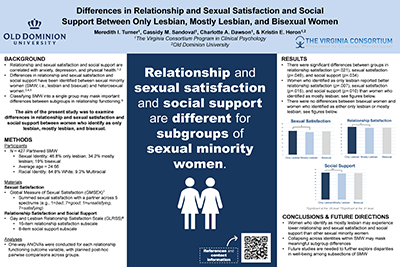ORCID
0000-0002-8216-5719 (Fitzer)
College
College of Sciences
Department
Psychology
Graduate Level
Doctoral
Graduate Program/Concentration
Health Psychology
Publication Date
2023
DOI
10.25883/w30q-vm42
Abstract
Background: Since the emergence of e-cigarettes in the United States in 2007, the aerosol-delivery devices have become the most commonly used tobacco product among U.S. youth. This trend puts decades of work deterring young people from cigarettes in jeopardy and increases the risk of exposing a new generation of young people to nicotine. Researchers need to know what behaviors to target and who is at greatest risk in order to act upon the U.S. surgeon general’s 2018 call to action.
Method: This study examined a variety of factors that have the potential to differentiate college students on their e-cigarette use. The sample for this study consisted of 1,083 college students ranging in age between 18 and 42 (Mage = 20.04, SDage = 2.57; 75.3% female; 40.5% Black). A variety of personality, environment, and behavioral factors were examined for their ability to sort students into two user groups based on their lifetime use of e-cigarettes, with participants who indicated having ever tried e-cigarettes being coded as ever users (n = 410, 37.9%). A recursive partition analysis (RPA) was used to assess which factors best separate students based on if they ever used e-cigarettes.
Results: RPA creates a hierarchy of variables that determine the e-cigarette user category in order of strength. Positive-negative functions discrepancy and past use of cannabis emerged as the most important factors able to differentiate students as never users and ever users. Positive-negative functions discrepancy is the difference in endorsed positive reasons to use e-cigarettes and negative reasons to not use e-cigarettes.
Conclusion: Results indicate that students who report less negative and more positive functions of e-cigarettes and have used cannabis are e-cigarette ever users. Policy makers and interventionists should use this information to reduce the risk of using e-cigarettes among young people.
Keywords
E-cigarette or vape, College students
Disciplines
Health Psychology
Files
Download Full Text (118 KB)
Recommended Citation
Fitzer, Samantha A.; Flores, Joe; and Henson, James M., "Can We Predict Who Tries E-Cigarettes?" (2023). College of Health Sciences Posters. 2.
https://digitalcommons.odu.edu/gradposters2023_healthsciences/2



